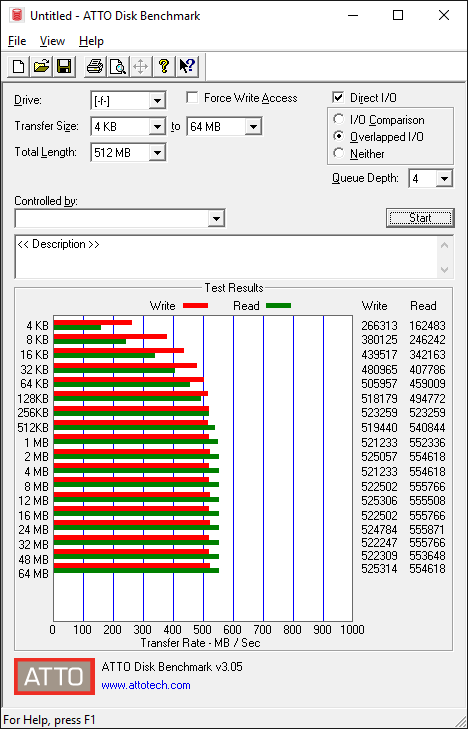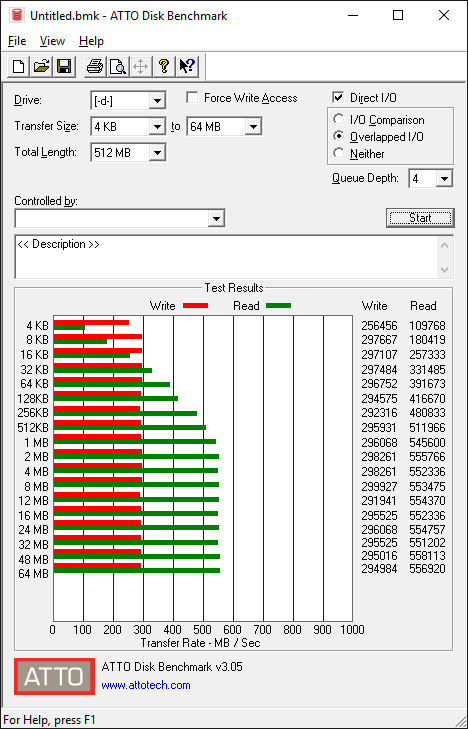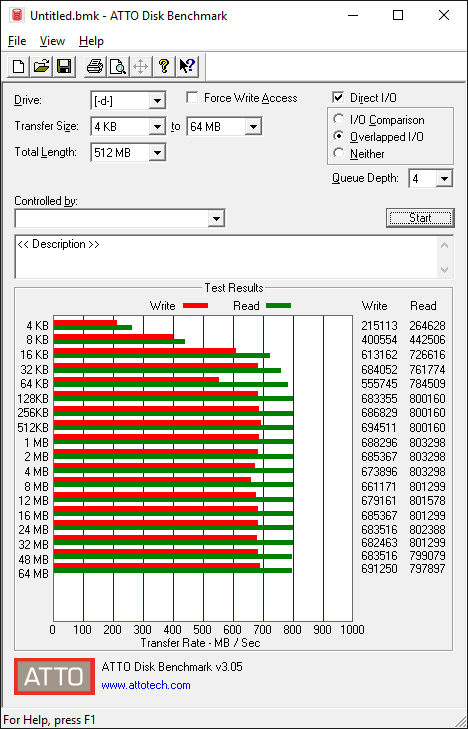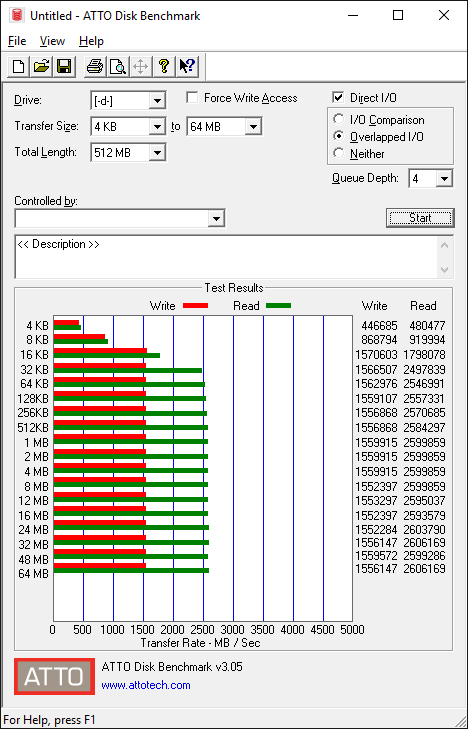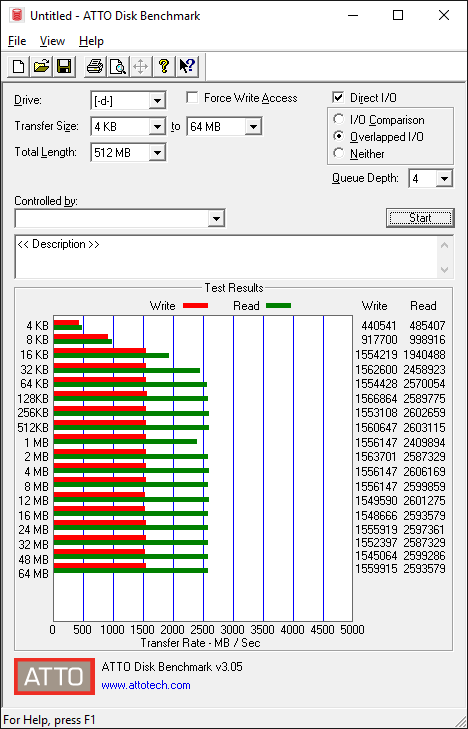- Qualcomm Launches Snapdragon 4 Gen 2 Mobile Platform
- AMD Launches Ryzen PRO 7000 Series Mobile & Desktop Platform
- Intel Launches Sleek Single-Slot Arc Pro A60 Workstation Graphics Card
- NVIDIA Announces Latest Ada Lovelace Additions: GeForce RTX 4060 Ti & RTX 4060
- Maxon Redshift With AMD Radeon GPU Rendering Support Now Available
ADATA Premier SP550 480GB Solid-State Drive Review
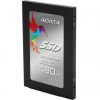
It’s easy to think that all budget SSDs perform the same, but ADATA proves otherwise with its Premier SP550. This TLC drive looks the part of modest SSD, but under the hood, it has a trick up its sleeve: 8GB SLC cache. The best part? That perk doesn’t add much to the cost of the drive, making this one SSD well worth looking out for.
Page 3 – ATTO, Robocopy, dBpoweramp & Final Thoughts
ATTO
With a total length of 512MB for the scratch file the ATTO test fits neatly in the SLC cache, giving us a perfect bar chart we’d expect on any performance SSD. Perhaps more telling is the higher read and write performance the SP550 offers in the <64KB file size range as compared to other SATA SSDs.
RAMDrive Robocopy
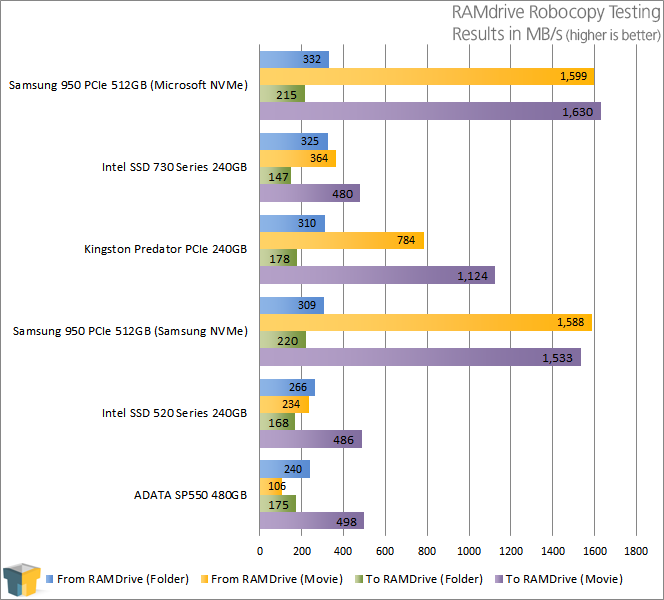
Robocopy gives us some valuable real-world usage over synthetic tests, and immediately we can see why this is important. One key thing to note about the synthetic benchmarks is that the tests many such programs use always fit neatly within the SLC cache.
Our movie file is 9.8GB which is more than sufficient to overflow the 8GB SLC NAND buffer, resulting in performance that places the SP550 at the bottom of the graph when writing the movie file to disk. In contrast our test folder is only 1.6GB in size which allows the drive to keep up, though not jump ahead of the other drives. Read performance is of course unaffected by this so it is no surprise the ADATA SSD again surpasses both Intel drives in read operations.
dBpoweramp
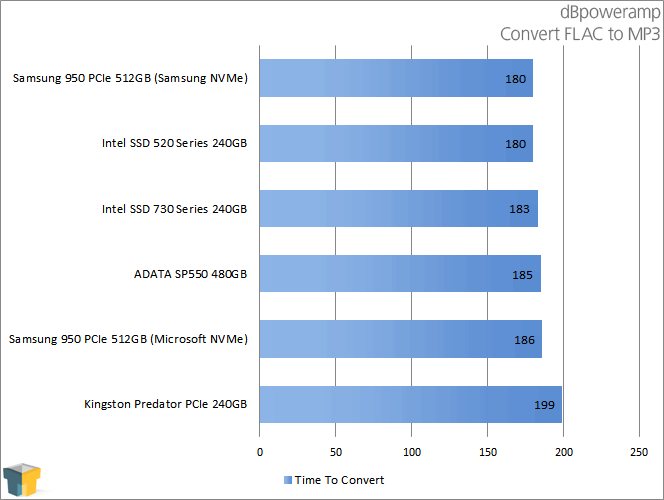
In this test we are CPU bound with a quad-core 8-thread processor. But safe to say pedigree does not matter here as a budget SSD like the SP550 is still quite capable of keeping pace with the other SSDs in moderate content-creation workloads.
Final Thoughts
As currently one of the cheapest budget solid-state drives on the market the ADATA Premier SP550 480G delivers surprisingly solid performance. Faced against older flagship drives and even some faster M.2 model SSDs the SP550 acquitted itself well, often times matching and occasionally exceeding the performance of the SATA drives in our benchmarks.
The SP550 utilizes an 8GB SLC cache so workloads with very large file transfers or programs that will output over 8GB of data may not be a good fit with this or any other TLC drives utilizing SLC cache buffering. That said SSDs are not generally used for mass storage, and for the latter anyone needing that level of sustained performance from a solid-state drive should probably be looking for a flagship SSD anyway, not a budget model drive.
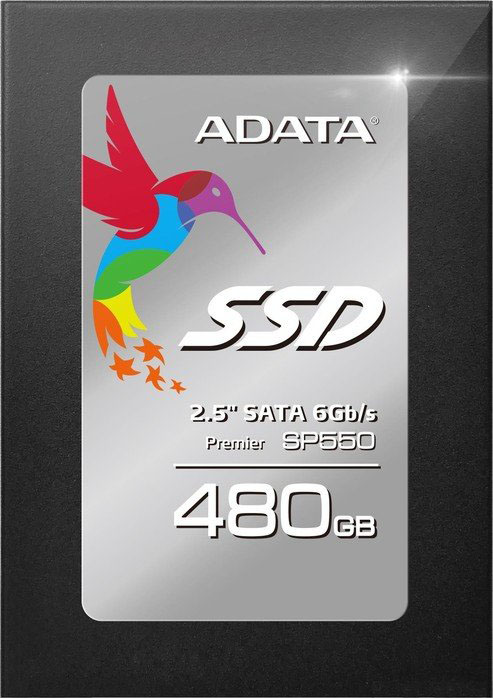
As such the SP550 feels strongly positioned as a budget offering, it delivers very good performance making it ideal for casual workloads and gaming sessions where its SLC buffer is not likely to be exceeded. If we ignore the surge in dubious SSDs from China the SP550 is literally the lowest cost 2.5” SSDs presently going.
Pricing is always a volatile thing that changes day by day for solid-state drives, but one recent sale had the SP550 drives flirting even cheaper than 20 cents per GB. And to think hard disk drives cost more per gigabyte eight years ago.
ADATA seems to have hit on the perfect recipe for a budget SSD when it created the SP550. The large SLC cache is unlikely to be exceeded in everyday tasks allowing the drive to deliver strong write performance at a price point only TLC NAND can match. An SSD spends most of its time in read operations and read performance across the entire drive remains very strong, even edging out the other SATA SSDs in our 9.8GB file transfer.
If looking for a low-cost SSD that doesn’t cut corners to deliver an ultra-low price the ADATA SP550 should definitely be at the top of your list.
Support our efforts! With ad revenue at an all-time low for written websites, we're relying more than ever on reader support to help us continue putting so much effort into this type of content. You can support us by becoming a Patron, or by using our Amazon shopping affiliate links listed through our articles. Thanks for your support!






